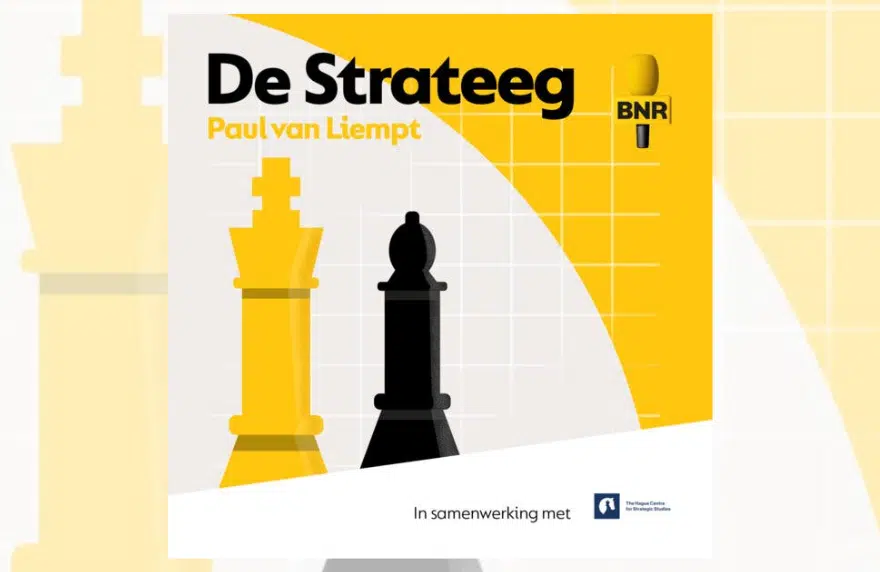Vandaag vindt in de Tweede Kamer het debat over de Nationale Grondstoffenstrategie plaats, met ministers Adriaansens (Economische Zaken en Klimaat) en Schreinemacher (Buitenlandse Handel en Ontwikkelingssamenwerking) en staatssecretaris Heijnen (Infrastructuur en Waterstaat).
In de nationale grondstoffenstrategie, die als doel heeft de leveringszekerheid van kritieke grondstoffen op middellange termijn te vergroten, wordt o.a. verwezen naar 3 rapporten van het Den Haag Centrum voor Strategische Studies (HCSS):
- Scenariostudie Kernenergie
- Securing Critical Materials for Critical Sectors: Policy options for the Netherlands and the European Union
- Cobalt Mining in the EU: Securing supplies and ensuring energy justice
Grondstoffen voor de grote transities
Voor veel bedrijven is het belangrijk dat het aanbod van kritieke grondstoffen voldoende groot is. Met name de productie van hernieuwbare energietechnologie voor de energietransitie leidt tot een grotere behoefte aan mineralen en metalen zoals lithium, kobalt en zeldzame aardmetalen. Daarnaast zijn deze grondstoffen nodig voor digitale technologieën, voor technologieën in de zorg en in defensiematerieel.
De wereldwijde controle over kritieke grondstoffen krijgt naast een economische steeds meer een geopolitieke dimensie. Europa is een belangrijke speler, maar ook kwetsbaar. De energie- en andere transities bieden Nederland en de EU de kans en verantwoordelijkheid om kwetsbaarheden in grondstoffenketens aan te pakken en de negatieve impact van winning en verwerking van kritieke grondstoffen op mens en milieu te verkleinen, bij voorkeur op Europees niveau.
HCSS onderzoek in de Nationale Grondstoffenstrategie:
- Scenariostudie Kernenergie (Witteveen+Bos en HCSS, oktober 2022); Voor kernenergie is uranium een essentiële grondstof. De geopolitieke risico’s op het gebied van materiaalverwerving zijn op lange termijn relatief beperkt bij kernenergie, schrijven o.a. HCSS analisten Michel Rademaker, Lucia van Geuns en Irina Patrahau in deze studie. Er zijn wereldwijd namelijk voldoende uraniumvoorraden en er is diversiteit aan leveranciers. Hiernaast is het mogelijk om uranium geruime tijd op te slaan zonder degradatie van het materiaal.
- Securing Critical Materials for Critical Sectors: Policy options for the Netherlands and the European Union (HCSS, december 2020); Nederland en de EU zijn voor kritieke grondstoffen sterk afhankelijk van andere landen en grondstoffenwinning is veelal sterk geografisch geconcentreerd. Zo komt het grootste deel van de zeldzame aardmetalen uit China, komt kobalt voornamelijk uit de Democratische Republiek Congo en lithium uit Australië. Maar onze strategische afhankelijkheden zitten niet alleen in de winning van grondstoffen, ze zijn nog sterker geconcentreerd als we kijken naar raffinage, schrijven HCSS onderzoekers Michel Rademaker, Lucia van Geuns en Irina Patrahau in dit rapport: China heeft in de afgelopen jaren een zeer significante positie opgebouwd in de raffinage.
- Cobalt Mining in the EU: Securing supplies and ensuring energy justice (HCSS, oktober 2022); De meeste grondstoffen zijn in absolute zin niet schaars, er zit genoeg van in de aardkorst, maar ze moeten wel gewonnen worden. Het aanbod van grondstoffen is echter op korte termijn behoorlijk star, schrijven HCSS experts Irina Patrahau en Michel Rademaker in deze paper. Het openen en exploiteren van een mijn kost 10-15 jaar en daar komt bij dat veel kritieke grondstoffen worden gewonnen als bijproduct van andere grondstoffen, zoals indium bij zink. Veel kritieke grondstoffen zijn in ook in Europa – overigens niet in Nederland – te winnen. Zo beschikken Scandinavië en Ierland over lithium en zeldzame aardmetalen. Finland, Zweden en Groenland beschikken over voorraden kobalt.
Bron: Tweede Kamer








